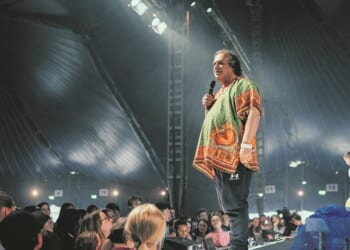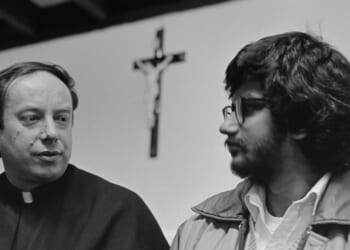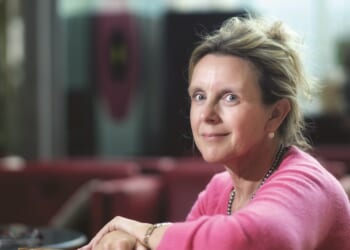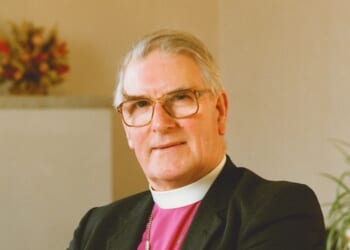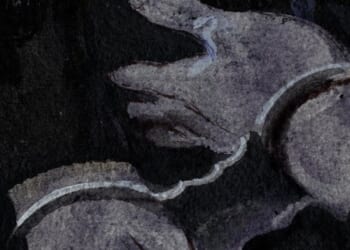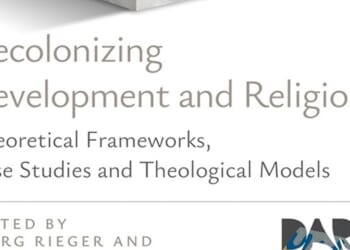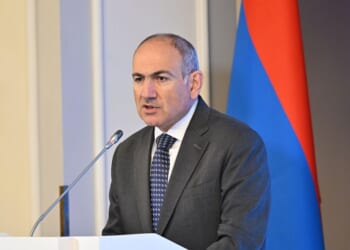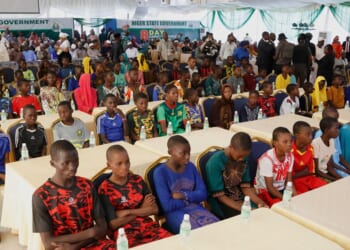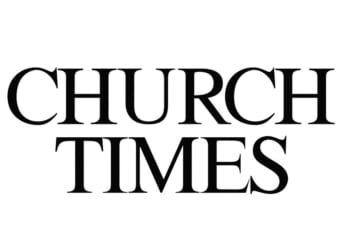Correspondents’ addresses must be supplied and will be published in full in print unless requested otherwise. But the web page will display only the place name (and/or “address supplied”). The Editor reserves the right to edit letters.
The Archbishop of York’s findings in the Holy Land
From Dr Jane Clements
Madam, — The Archbishop of York’s visit to Israel and the West Bank has highlighted the obligations on us, as Church. For far too long, Palestinians, including Christians, have endured the apathy of a world that has opinions to offer, but little else. Israeli Jews, “the first to hear God’s word”, as the liturgy says, have lived under an uneasy status quo in the false belief that nothing needed to change.
In his statement, the Archbishop began with the terrible atrocity of the massacre by Hamas in 2023. He would, however, have known that his words “apartheid” and “genocide” were the headline-grabbers. This was deliberate, understandable, and born of a harrowing visit, intended to push home the full tragedy.
Leadership from our Government and our Church (Leader comment, 21 November) on this has been poor. Concern about increased antisemitism is certainly justified: the Jewish community is a vulnerable minority, numbering less than 300,000. A significant number have friends or family affected by the October 2023 events. The community as a whole feels increasingly unsafe here.
Last week, a meeting at the House of Lords, hosted by the Rt Revd Lord Harries, heard from young Jews, Muslims, and Christians involved with FODIP (the Forum for Discussion of Israel and Palestine). One Jewish speaker told how he had been followed on to a train and verbally abused at length by a stranger. Another reported being repeatedly sworn at as he passed a pro-Palestinian demonstration set up on campus.
A Muslim law student spoke of her shock at being denied entry at Ben Gurion airport, where her British passport did not prevent her being labelled as a security threat because of her hijab. Another Muslim told of how her Britishness here was continually questioned.
What to do? We desperately need to be honest. Honesty requires that we do not ascribe labels to whole communities or ethnicities, but that we acknowledge every injustice and brutal act. We also need to look to organisations providing a safe space for experienced and facilitated engagement; the conversations need to happen. Such approaches are both an integral part of our calling and vital for our society.
JANE CLEMENTS
Bicester
From Mr Andy S. J. Lie
Madam, — I have been much encouraged by your editorial decision to provide extensive coverage (News, 14 and 21 November, though not at the expense of other conflicts) of the occupied Palestinian territories.
The Archbishop of York’s movingly eyewitnessed and courageous naming of the evil that has been perpetrated especially in Gaza as “genocidal acts”, alongside the atrocities levelled on to the beleaguered communities in the West Bank, confirmed only what the Bishops of Chelmsford, Gloucester, Norwich, and Southwark have been consistently declaring over the past two years.
This fresh declaration from the Archbishop has somewhat restored my faith in the senior leadership of the Church of England. What about the many other bishops, whose silence is deafening? This new positioning might suggest that the Church of England has reached a new level in its institutional remorse, not least spurred on by meeting Palestinian Christians, whose increasing isolation and desperate cries for help have now received a wider response.
The Archbishop’s candid assessment also makes good ecumenical sense. It accords with what has been declared by Quakers in Britain and the United Reformed Church, alongside strong statements from the other Dissenting traditions and the Roman Catholic Church.
What I find most disturbing is the Chief Rabbi’s accusation of the Archbishop’s approach as “irresponsible”. This is the same Chief Rabbi (representing only Orthodox Judaism) who has consistently exposed his moral blind spot in refusing to condemn the Israeli State and its emboldened military forces for their persistent violence (with the latest incursions into Beirut). This surely does not bode well for healthy interfaith relations, which necessarily demand constant self-introspection, mutual transparency, and honest engagement among the interlocutors.
Finally, what the Archbishop has said is timely. It is also the “how” that should immediately concern us. The General Synod has no excuse not to have “Palestine (Carlisle Motion)” on its business agenda in February 2026. Palestinian Christians and their leaders have spoken, and they are waiting for action. The Church of England must make a clear and unequivocal stand, calling for the end of nearly six decades of brutal occupation and the removal of all illegal settlements, seriously consider the options of boycott, disinvestment, and sanctions against Israel, and supporting full Palestinian determination and rebuilding for their future.
While it was also timely that we observed Christ the King last Sunday, where might we see Christ’s reign except in the rubble (heeding the Revd Munther Isaac’s Christmas 2023 call) as we welcome Advent?
ANDY S. J. LIE
Reader, diocese of Newcastle
Address supplied
From Miss Vasantha Gnanadoss
Madam, — You commend the Archbishop of York for his “powerful — and overdue — declaration” on Gaza and the West Bank. The Archbishop uses the terms “genocidal acts”, “apartheid”, and “ethnic cleansing”. These are all borrowed from other horrific contexts, and no doubt their applicability to Gaza and the West Bank will continue to be challenged.
Your account of an interview with the Archbishop (News, 21 November) makes it clear that he used these terms with reluctance, but that the impact of direct Palestinian testimony during his visit left him no choice. Of particular note were his exchanges with a group of women at St Andrew’s, Ramallah. Discussion with the organisation Rabbis for Human Rights also proved to be influential. In addition, he had first-hand experience of the lawless and violent actions of armed settlers in the West Bank.
The Archbishop has placed on his website the full text of a speech at Lambeth Palace on 18 November. In this speech. he takes great care to check his use of contested terms against definitions found in the 1976 International Convention on the Suppression and Punishment of Crimes of Apartheid, the International Criminal Court, and the 1948 Genocide Convention.
He ends his prophetic speech with a renewed call for prayer and a call to action, seeking peace and justice for everyone, be they Christian, Muslim, or Jewish. I applaud this return to dynamic spiritual leadership in the Church of England.
VASANTHA GNANADOSS
London SW17
Questions posed by Winchester Net Zero ruling
From the Revd Jonathan Clark
Madam, — Your headline “Winchester boiler case tells ‘a cautionary tale’” (News, 7 November) is certainly correct, and for more reasons than your report gives. As the PCC, we have been disappointed in the Chancellor’s judgment in this matter; for it missed an opportunity to draw out some lessons and questions for the wider Church.
Christ Church, Chineham, has been a registered EcoChurch for many years, and so initially, when we had gas boilers fail, I was excited to think that we could move to a low-carbon heat-pump technology for our building, which is also Chineham’s larger community centre, with many hundreds of users throughout the week.
We were fortunate to have our own in-house professional in commercial heating design. Over the course of the next few months, he and our other volunteer facilities team spent man-days producing exactly the kind of style and length of Heating Options Appraisal as recommended by the Church Buildings Council (CBC). The Chancellor later dismissed this as not being detailed enough: a caution to the CBC and all who rely on its advice.
Through Winchester diocese, we quickly had an independent energy audit done, and consulted the diocesan advisory committee (DAC). Unfortunately, the DAC were extremely slow to reply, despite the urgency, and took nearly a year to pronounce. They never visited our site to see the many constraints that argued against their preference of a Bio-LPG system.
Meanwhile, the Energy Audit recommended a different solution: air-source heat pumps — and didn’t even mention Bio-LPG as an option. When we went to suitable specialist installers to get quotes, they advised that neither technology made sense, given our building, with its three large and eight smaller separate spaces to heat, and one even refused to quote. This rather confirmed our in-house expert’s view.
Our PCC’s conclusion was that replacing the failed boilers with significantly more efficient gas condensing boilers was, unfortunately, the only viable and affordable solution, as a temporary measure, while we wait for grant funding for a longer-term low-carbon energy solutions, including on-site solar generation.
This saga has hurt our standing in the community, as the building and all its church and community groups endured a cold winter without central heating. It has been extremely draining for our staff and volunteers, causing illness, and has been a huge distraction from our mission. The judgment leaves us with tens of thousands in additional costs over the next few years, despite relying on just one of a range of expert opinions, which disagreed with one another. It also gives us a very different outcome from a similar case in a different diocese.
So, a plea and some questions. First, a plea to churches: pray earnestly that your existing boilers don’t fail.
Question to dioceses: we were fortunate in having professional expertise and committed volunteers who spent much time on this, and even so have been criticised by the Chancellor. Most will not have this luxury, and so how can you support parishes to do the kind of very specialist work beyond what the CBC requires?
Question for the General Synod: we support the drive to net zero carbon, but was this the kind of result that you intended in your formal drive to it? What can you do to prevent a repetition of this?
And a question to DACs: how do you have to reform your work, so that you can respond in a much more timely manner to urgent lack-of-heating issues, and avoid actively harming the mission and ministry of more parishes?
JONATHAN CLARK
Basingstoke
Pitfalls of language in linking physics to theology
From Professor Kevin Walsh
Madam, — I very much enjoyed Madeleine F. White’s references to quantum mechanics (Analysis, 21 November) when grappling with ideas about the Kingdom: the metaphor is an illuminating one. Physics, as an inquiring discipline, can assist our theological investigations in many different ways, but we do need to be wary of the use and potential misuse of language.
Rather like the “dead words” of her youth which she mentions, the linguistic representations of mathematical descriptions have often lost something in translation long before we reach an age of possible enlightenment.
For example, the suggestion that particles do not exist until a wave is observed is misleading. The behaviour of light exhibits both wave and particle characteristics, and when light, described as a wave, interacts with its environment, it is said that the quantum-mechanical parameter called the wave-function “collapses”.
This is another way of suggesting that the hitherto indeterminable values of that wave-function now have defined values ? in the same way as what we call a particle would. This highlights the usual issue of our choice of words to describe a phenomenon.
I am reminded of a quotation that has been associated with the American-Italian physicist Enrico Fermi, when he was asked the question “What does an electron look like”? The reply was “An electron doesn’t look like.”
KEVIN WALSH
Address supplied (Bexleyheath)
Unity and scruples
From the Revd Dr John Sutcliffe
Madam, — I am a United Reformed Church minister whose major work was in theological education. For the past 25 years, I have attended my parish church and taken a full part in its life.
There are many things about the Church of England which I admire and many I want to question. I could not give assent to all the Thirty-Nine Articles. But our unity in Christ and God’s gift of love are more important than my scruples.
I wish profoundly that members of Gafcon (News, 24 and 31 October) could take a similar view.
JOHN SUTCLIFFE
Address supplied (Winchcombe, Gloucestershire)




